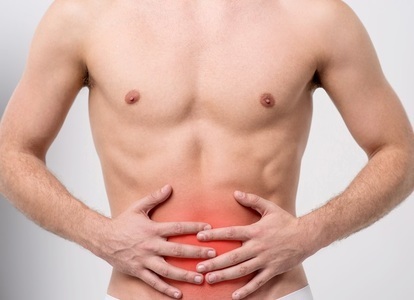Cystitis occurs when the bladder becomes inflamed, usually because of a urinary tract infection (UTI). Some have asked whether guys can get cystitis because cystitis more often occurs in women, because they have a short urethra. The urethras location, near the anus, makes infection from bacteria more likely to occur. The bacteria, most commonly Escherichia coli, create a UTI and then cystitis when they reach the bladder. Cystitis in males occurs less frequently. However, it can be more serious in men as well.

What Causes Cystitis in Men?
It occurs by not properly emptying the bladder – this is more common with men who have large bladders, damage around the urethra, or bacteria from anus to urethra. In some cases, the latter occurs from sex. It can also occur from a urinary catheter being changed, kidney problems, and frequent or vigorous sex that results in bruising or physical damage to the urethra.
With cystitis, men are more at danger because it could mask prostatitis (a prostate infection), a blockage (including a tumor) in the urinary tract or an enlarged prostate.
Risk Factors of Cystitis in Men
Several factors may increase the risk of cystitis for men. These include an enlarged prostate, kidney stones (that’s why it’s important to always be hydrated), and an abnormal narrowing of the urethra. Additionally, using an artificial means of draining the bladder or inserting a camera, processes known as catheterization and cystoscopy respectively, can increase the likelihood.
Age plays a role as well. Men over the age of 50 are at a considerably higher risk of cystitis due to the fact that the prostate tends to become enlarged in older age.
Also, male homosexuals who engage in same gender sex are more likely to develop cystitis than others who do not engage in the same type of sex.
What Are the Symptoms of Cystitis in Men?
In cystitis, men show a variety of symptoms, including:
- Having to pee more often than regular
- Needing to pee urgently
- Cloudy urine with a strong odor
- Blood in the urine
- A burning or tingling sensation after urination
- Having trouble urinating
- Having a low fever
All of these could indicate an inflammation of the bladder. Young men often confuse cystitis with an inflammation of the urethra, known as urethritis. Both have the symptom of painful urination. Urethritis could be a symptom of another problem: chlamydia, a sexually transmitted disease. In any case, talk to your doctor if symptoms persist.
How to Treat Cystitis in Men
As previously mentioned, some symptoms associated with cystitis, could be symptoms of another underlying problem. If symptoms persist, children and men should visit a doctor. If caught early, most treatments effectively solve the problem. If left untreated, however, cystitis can lead to kidney or prostate infections.
Home Remedies
- In most cases, a visit to the doctor is unnecessary. A mild case can be cleared up with drinking lots of water and taking painkillers like ibuprofen.
- Abstinence during this time also helps since sex can further exacerbate the problem.
- In addition to drinking water, cranberry juice has been proven to help the urinary tract, because it contains tannins, manoose D, and proanthocyanidins, which inhibit the E. coli bacteria from sticking to the walls of the urethra.
- Additionally, avoid drinking alcohol during this time, since it exacerbates the problem.
Medical Treatment
When medical treatment is necessary, doctors often prescribe a short course of antibiotics, with most feeling the effects within the first treatment. If things do not improve after the treatment expires, consult the doctor.
Prevention
- Drinking cranberry juice can help prevent an inflammation of the bladder though it lacks scientific proof.
- Wipe from front to back.
- Wear cotton underpants and avoid tight ones.
- Practice good hygiene after sex and use unscented soaps around the genitals.
- Try emptying your bladder right after sex.
- Always empty your bladder completely and urinate whenever you feel the need to.
